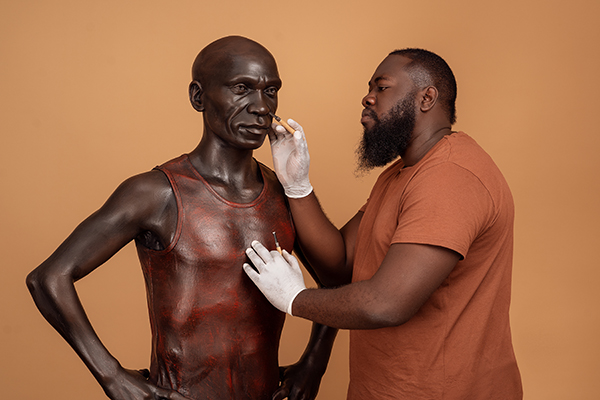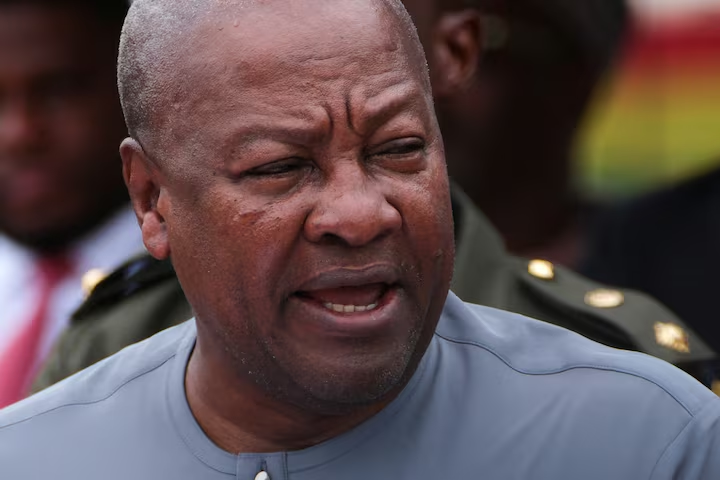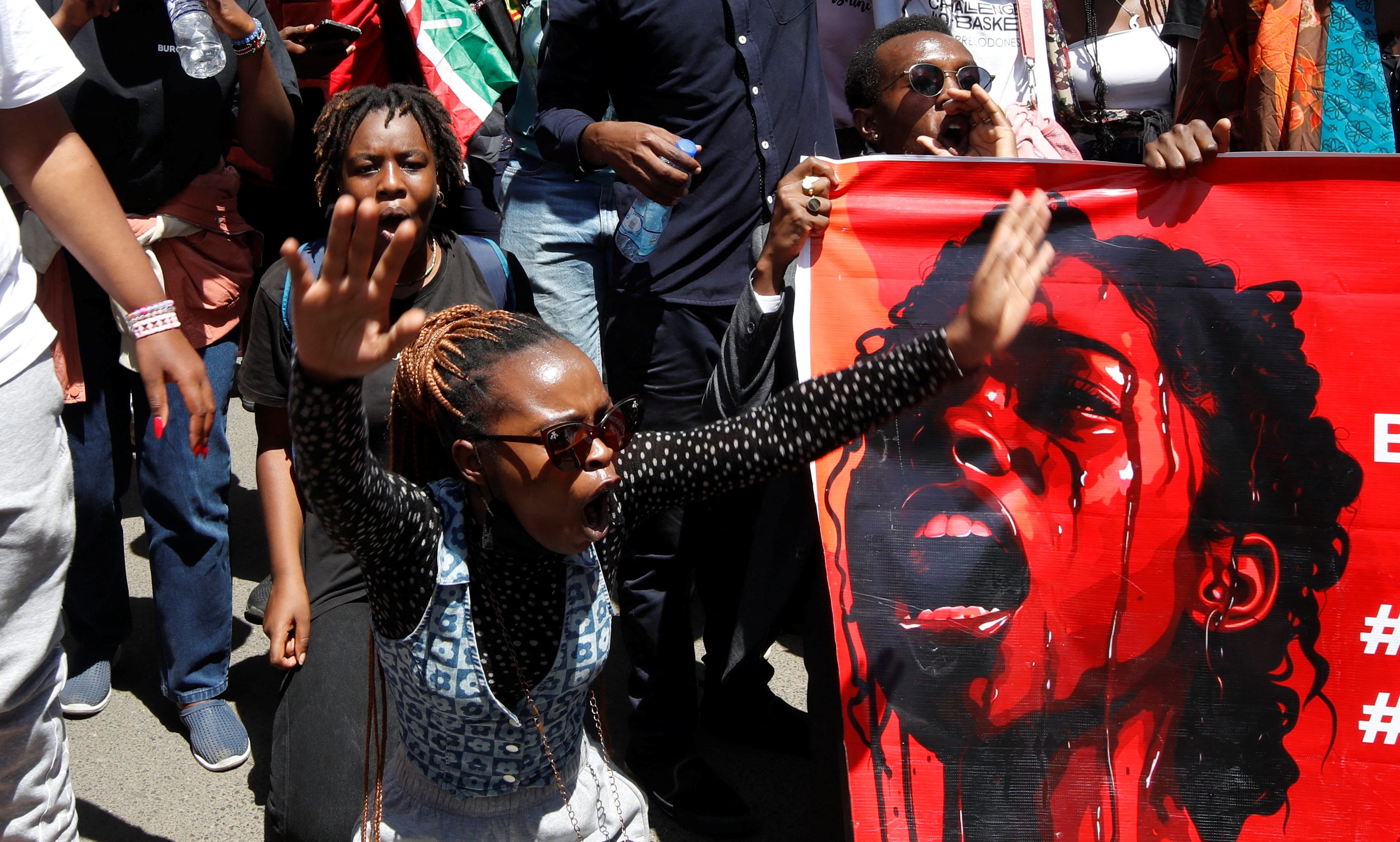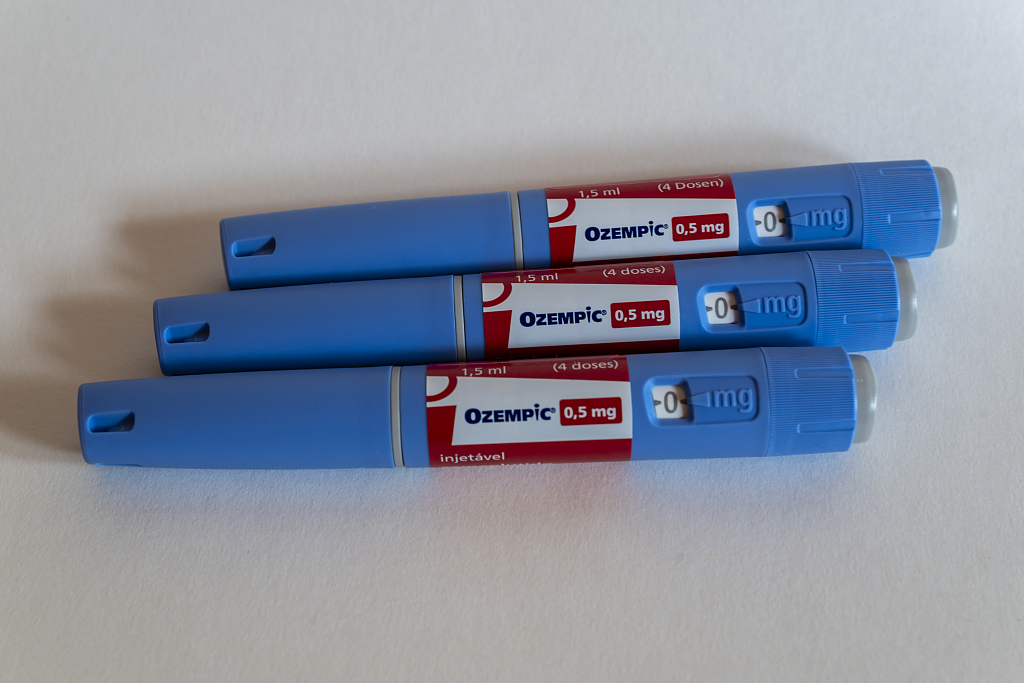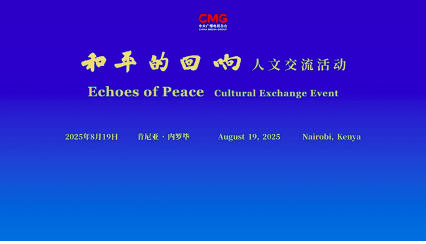Katerina in Liberia
CCTV Africa’s Katerina Vittozzi has just come back for an intensive assignment in Liberia. She tells us about whether she felt scared, the bravery and kindness she found in the middle of a crisis and whether she got out of the country in time for her wedding!
[flagallery gid=14]
Aren’t you scared?
“Aren’t you scared?”
It was a question I was asked a lot before I arrived in Liberia to cover the country’s worsening ebola outbreak.
I had already been there once before, back in April. At that time 10 people has already died from the virus but no-one was really talking about it. People were more interested in the upcoming World Cup than ebola. Fast-forward four months: hundreds more have been killed and the Liberian president has issued an official state of emergency. News about ebola is everywhere – on the radio, in the local newspaper. It’s all anyone can talk about and people are deeply frightened.
But am I? Yes, and no.
Yes because, like everyone, I read the scary stories about the disease’s high fatality rate and of its horrific symptoms. No because, like any field correspondent should do, I made sure I knew what precautions to take to protect myself and my cameraman. Rory Peck Trust helped me to pay for hostile-environment training before I came to West Africa which was invaluable.
Arrival
My cameraman Mark and I arrived in Monrovia without a problem which was a relief. We’d been told there were rigorous health-checks for arriving passengers but in fact all they did was take our temperatures. So far so good for us, in terms of ease of entry. But I couldn’t help but wonder if more rigorous health-checks might be, for the sake of containing ebola, a good thing.
Sermons and Screenings
Our first day shooting was at a local church, St Stephen’s. The music was uplifting: Episcopalian gospel as it’s very best. A health team was delivering ebola outreach messages during the service. We wanted to capture that and speak to people generally about how life was different with Ebola in their midst.
I was struck by the story of Tarlinto Thomas. She was a young mum. Her baby Anta was just four-months’ old. But Tarlinto was too scared to let other people hold her baby – even her own family. It was incredibly sad but this was the reality we met time and time again. Shaking hands was frowned upon and people were too afraid to touch each other. That’s almost unheard of in West Africa where physical, hands-on greetings are such a part of the culture. Ebola has stripped that from people.
Business stalled in the Capital
We stayed in Monrovia for five days or so, talking to more people about the impact ebola had on their lives. We spoke to businesses that were struggling through lack of customers, expats who were too scared to stay in the country and local health authorities who were buckling under the pressure of trying to contain the disease’s spread.
One afternoon we heard the President was chairing an emergency task-force meeting at the Ministry of Health. We headed there to try and get an interview. We were taken in but soon the country’s stressed looking Health Minister came to shoo us away. Nerves were clearly fraying. Officials are under a lot of pressure to try and contain this virus’ spread.
The situation is worse in the North
The second half of the trip was spent up North, and that’s where logistically the problems started. These are the country’s worst-affected areas with hundreds of deaths recorded since March. Movement into and out of these areas has been restricted to try and contain ebola’s spread. We hitched a ride in a UN helicopter to Voinjama, the capital city of Lofa county. It borders both Guinea and Sierra Leone and, visually, it is utterly stunning. Rolling hills and lush green forest. However, if we thought the situation Monrovia was bad, in Voinjama it is utterly terrible.
We met the District Health Officer (DHO). I honestly thought he was going to collapse. He was manning the town’s emergency ebola hotline. People would call him to tell him if someone was sick. He was trying to co-ordinate getting these people, suspected ebola patients, isolated as soon as possible and sent to the nearest ebola treatment clinic, Foya. But Foya is a 2-hour drive away and the DHO only had one ambulance. He was receiving numerous calls a day but he has no means to send these people to Foya. Suspected cases were literally being left to fend for themselves. A few days before we arrived a man has simply collapsed and died on the street. Too scared to touch him, people just walked by. He was lying there for nearly 24-hours before a healthcare team, properly suited, could come and take him away. Tests later showed he was ebola positive.
The bravery of health workers
On our second day up north we filmed at the Foya Clinic. There was a lot of activity. Building work is underway to try and make more space for the ever increasing number of patients. Healthcare workers try their best but they are simply under-staffed and under-funded. Medecin Sans Frontiers (MSF) are doing incredible work here. They fund the Foya clinic and co-ordinate the local staff. But their own resources are stretched to the limit. They are running similar clinics in Guinea and Sierra Leone. I spoke to one lady, an MSF volunteer from Belgium, who’s been working here and in Guinea for nearly 3 months non-stop. She was exhausted and busy but still managed a smile for everyone. I was humbled by her courage, as I was by all the healthcare workers who put their lives at risk to treat patients. They are totally amazing and need so much more support.
Will we get to the wedding on time?
We wrapped up filming in Lofa and prepared to head back down to Monrovia. The UN kindly gave us permission to fly back with them again for which I was grateful, I needed to get back to Monrovia and back home – I am getting married in a matter of days .
The flight was cancelled due to bad weather, apparently helicopters can’t fly in rain – who knew? The only option was to drive down. Normally the journey takes about 8 hours. Second problem: army road-blocks. With the quarantine now in place, many cars and people were being stopped and turned around as they tried to get to Monrovia. Thankfully the Red Cross, who we had done some filming with, came to the rescue. They had rented a car to go down to Monrovia. Again, I am constantly amazed at people’s kindness, even when they are in the middle of a crisis.
At 10am our car broke down. And there it stayed broken for the next 24-hours. We were in the middle of forest, no phone reception and no mechanic within reach. 6am on Sunday. Still no second car. I am starting to panic – can one do marriage vows over skype? We walk further to the nearest road block. The mechanic’s there, asleep in the car. He hadn’t been let through so had been waiting there since the previous night. We explain the situation to the border control, the mechanic’s checked over by a nurse and we get through. We gleefully take the second car and, by midday, we are finally on our way to Monrovia. We make it at 6pm on Sunday. I could have weeped for joy.
But there I am lucky, and I know it. I don’t live in Liberia, it’s not my home and I can leave unlike thousands of others. They remain there with the constant worry of this horrible disease looming over them. It’s seems so very unfair.


